Proofreading improves your writing, and it is a highly crucial step for a perfectly written academic paper. It necessitates a broad-ranging comprehension to fix a paper excellently and requires English proficiency to identify and correct errors. When you want to ensure that your paper is error-free in terms of grammar, punctuation, spelling, and formatting, you need a proofreading service.
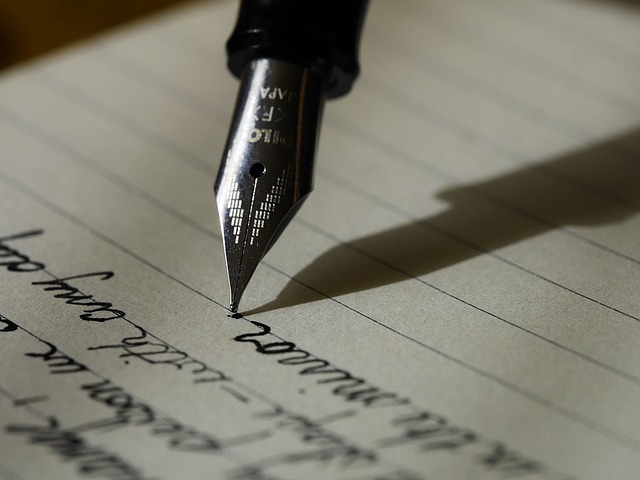
Proofreading improves your writing, and it is a highly crucial step for a perfectly written academic paper. It also necessitates a broad-ranging comprehension to fix a paper excellently and requires English proficiency to identify and correct errors. When you want to ensure that your manuscript is error-free in terms of grammar, punctuation, spelling, and formatting, you need proofreading service. Therefore, proofreading is a critical part of the writing process.
Proofreading is considered the last step of writing before finalizing the paper. Hence, it should be done at the end of the writing process. When an editor comprehensively edits and reviews the manuscript for major language errors, then the writer needs proofreading.
Proofreading a document before submitting it easily eliminates the undesirable points of a paper and will allow the writer to have an excellent assignment, paper, article, or thesis. However, most students and academics somehow disregard this essential step. Proofreading a document is as important as the other processes of writing because the process is efficient to make explicit your viewpoints logically.
Detailed proofreading will allow you to correct any errors that may shadow your real intention or that you might have missed. Although technology offers some helpful online tools, such as a word processor, Google, or any online spell checker, these tools do not always detect all errors or frequently misused words. Thus, you need proofreading service to see and fix all language errors in grammar, punctuation, spelling, and typography.
Proofreading catches and corrects grammar errors. It must be noted that misplaced punctuation may change the intended meaning of a sentence. Hence, checking and fixing punctuation errors is one of the most critical elements of proofreading. A proofreader should be meticulous about the placement of periods, commas, quotation marks, apostrophes, colons, and semicolons.
Writers commonly make mistakes with homonyms. Cambridge Dictionary defines homonym as a word that sounds the same or is spelled the same as another word but has a different meaning. Hence, proofreading will take your stress out. Proofreading is the last step of writing before finalizing the paper. It eliminates catastrophic results stemming from misused homonyms. Proofreading also detects substantial and trivial errors and can greatly reduce mistakes by revising incorrect word choices.

Here are some valuable pieces of advice for proofreading:
Pay attention to the following tips because they indicate why proofreading improves your writing:
Do not proofread a paper when you are writing or editing it. Complete the writing or editing process first and then start proofreading.
Marking errors is the first critical stage of the best proofreading. Thus, diagnose and fix grammatical errors (in punctuation, spelling, syntax, and typography). Select one error at a time, and you will be less likely to miss any errors.
Proofread all sections of the paper. Do not proofread only a section of the manuscript.
Proofread a document more than once. You will notice and catch more errors than you expect.
Do pay attention to homonyms. When proofreading, be vigilant with changing words because doing so might result in some unintended errors.
Best Edit & Proof expert editors and proofreaders focus on offering manuscripts with proper tone, content, and style of academic writing, and also provide an upscale editing and proofreading service for you. If you consider our pieces of advice, you will witness a notable increase in the chance for your research manuscript to be accepted by the publishers. We work together as an academic writing style guide by bestowing subject-area editing and proofreading around several categorized writing styles. With the group of our expert editors, you will always find us all set to help you identify the tone and style that your manuscript needs to get a nod from the publishers.
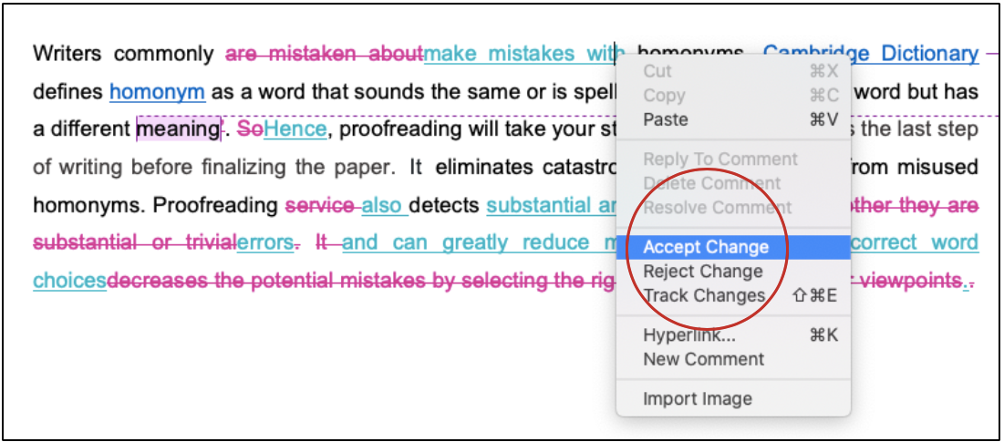
You can also avail of our assistance if you are looking for editors who can format your manuscript, or just check on the particular styles for the formatting task as per the guidelines provided to you, e.g., APA, MLA, or Chicago/Turabian styles. Best Edit & Proof editors and proofreaders provide all sorts of academic writing help, including editing and proofreading services, using our user-friendly website, and a streamlined ordering process.
Visit our order page if you want our subject-area editors or language experts to work on your manuscript to improve its tone and style and give it a perfect academic tone and style through proper editing and proofreading. The process of submitting a paper is very easy and quick. Click here to find out how it works.
Our pricing is based on the type of service you avail of here, be it editing or proofreading. We charge on the basis of the word count of your manuscript that you submit for editing and proofreading and the turnaround time it takes to get it done. If you want to get an instant price quote for your project, copy and paste your document or enter your word count into our pricing calculator.
Contact us to get support with academic editing and proofreading. We have a 24/7 active live chat mode to offer you direct support along with qualified editors to refine and furbish your manuscript.
Follow us on Twitter, LinkedIn, Facebook, Instagram, and Medium.
For more posts, click here.
How to Determine Variability in a Dataset
14.10.2023
How to Determine Central Tendency
19.02.2023
How to Specify Study Variables in Research Papers?
14.01.2023
Population vs Sample | Sampling Methods for a Dissertation
14.01.2023
How Much Do Professional Editing and Proofreading Cost?
01.02.2022
How Much Do Proofreading and Editing Cost?
19.06.2021
How to Ensure the Quality of Academic Writing in a Thesis and Dissertation?
04.12.2022
How to Avoid Anthropomorphism in Your Dissertation?
04.11.2022
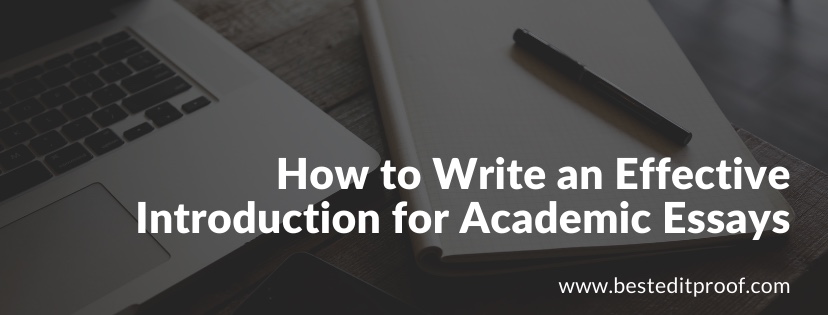
Writing an impactful introduction is more than just following the rules. If you search on the Internet, you may find stereotypical rules and regulations. However, it is important to understand that the author’s creative sense and ability to comprehend the topic helps in executing an effective introduction. This article discusses the major elements of writing an introduction and how you can write an impactful introduction.
Continue Reading
Academic papers demand writing styles that have various rules and regulations to maintain. Therefore, it is natural for first-timers to make several mistakes. As they say, you learn from your mistakes. Yet, writing an academic or research paper is a big deal, and you would like to avoid mistakes as much as possible. As we understand the need to not make any mistakes while writing academic or research papers, we have put together the most common editing and proofreading mistakes that almost every first-timer makes when they first start writing academically. This article discusses 5 common editing and proofreading mistakes.
Continue Reading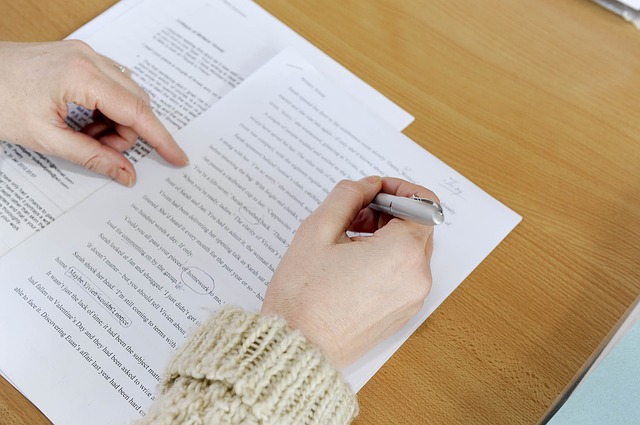
Depending on the skills and budget, you can do your proofreading. Yet, getting professional help will give you better products and advice. This will improve your piece of writing for the best. In this guide, we will breeze you through brief info on what proofreading services are.
Continue Reading
There is always a misconception regarding academic editing and academic proofreading. Although they can be used interchangeably, editing and proofreading services are two different stages of the revision process. In this article, the concepts of proofreading and editing will be cleared accordingly, focusing on the basic differences as well as techniques to accomplish both tasks.
Continue Reading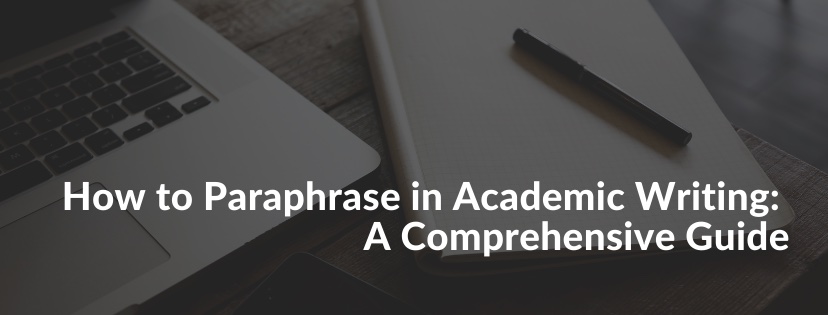
Paraphrasing is a regular exercise in academic writing. High school students, college students, and research scholars are required to paraphrase to demonstrate their understanding of a text. However, there are cases when, due to ineffective paraphrasing, instances of plagiarism dot an academic manuscript. Therefore, academic writers must correctly understand the fundamentals of academic paraphrasing and apply them to their writings to avoid any occurrence of any academic offense. This article will peruse the anatomy of academic paraphrasing. In addition, it will examine how paraphrasing is different from summarization and suggest ways to paraphrase effectively.
Continue Reading